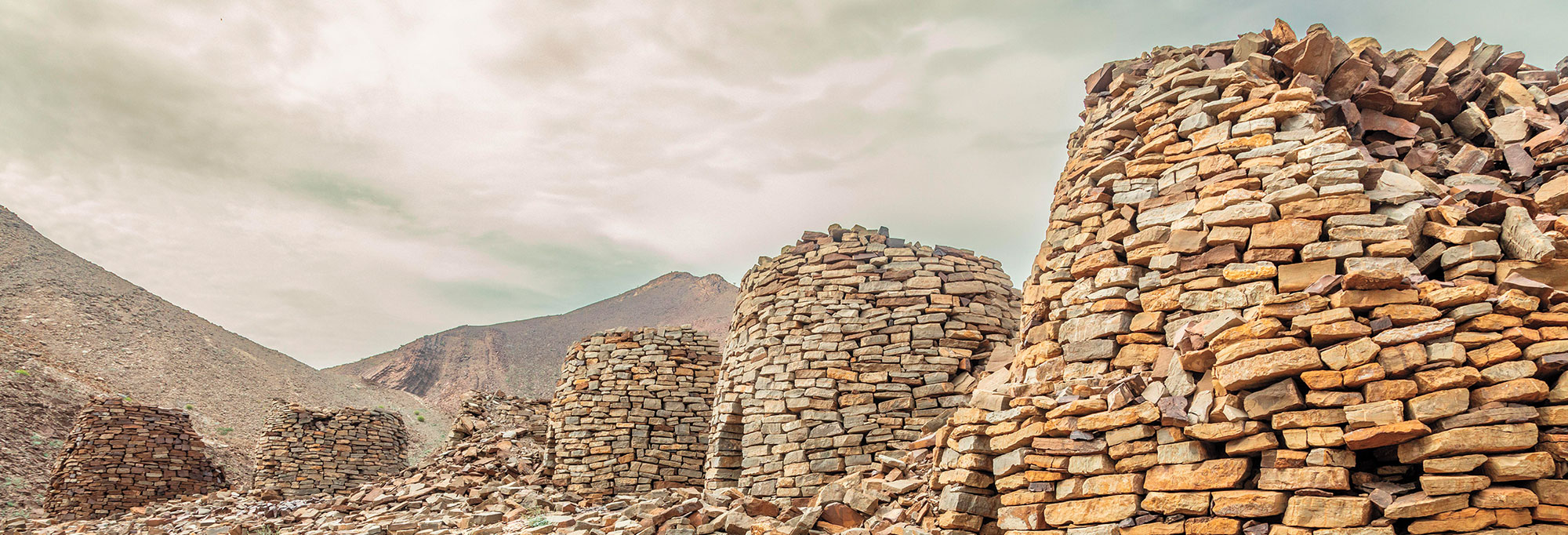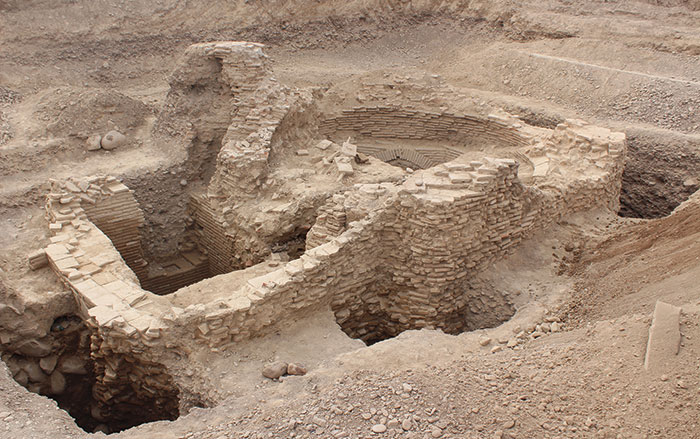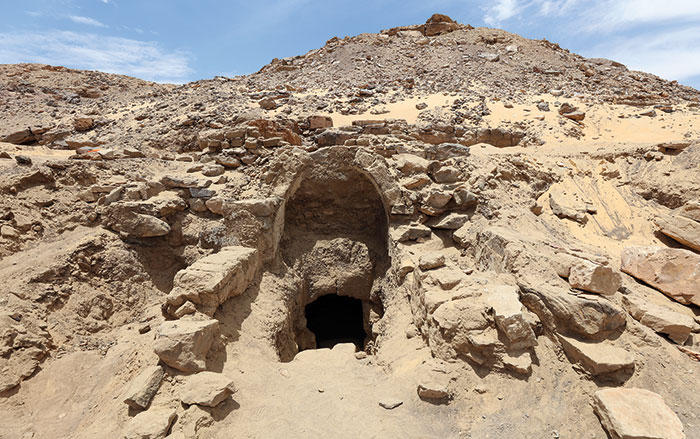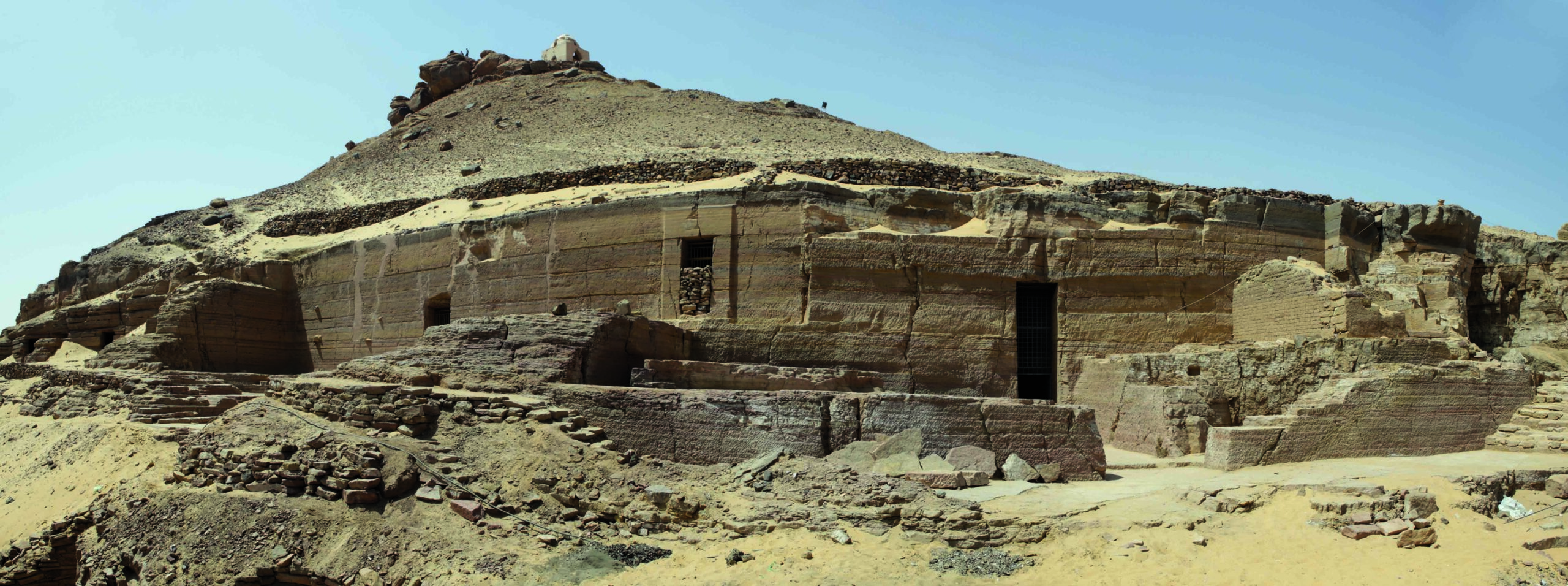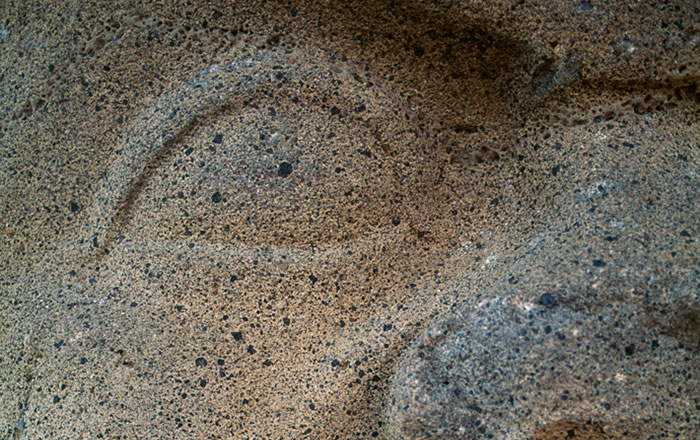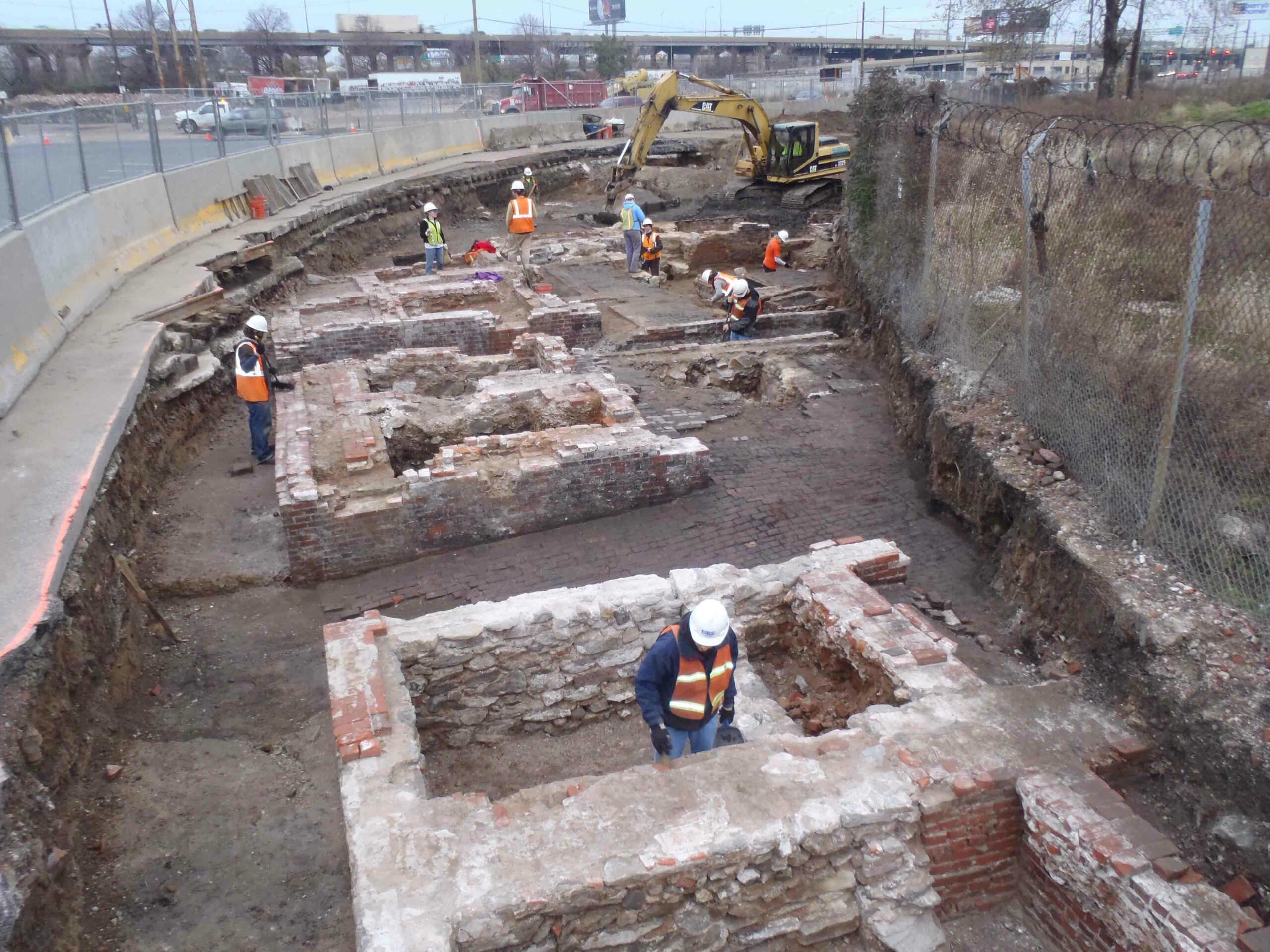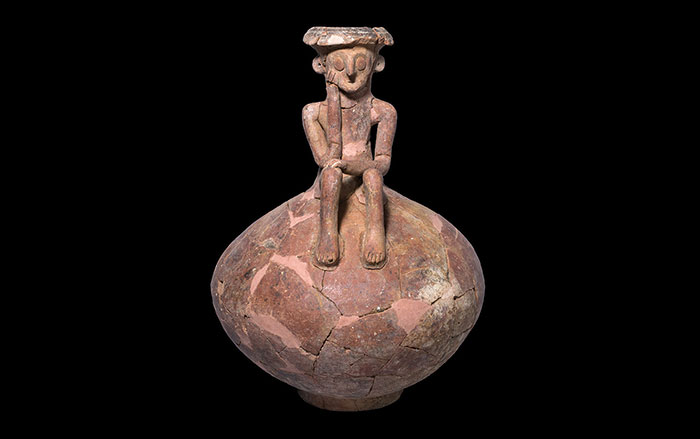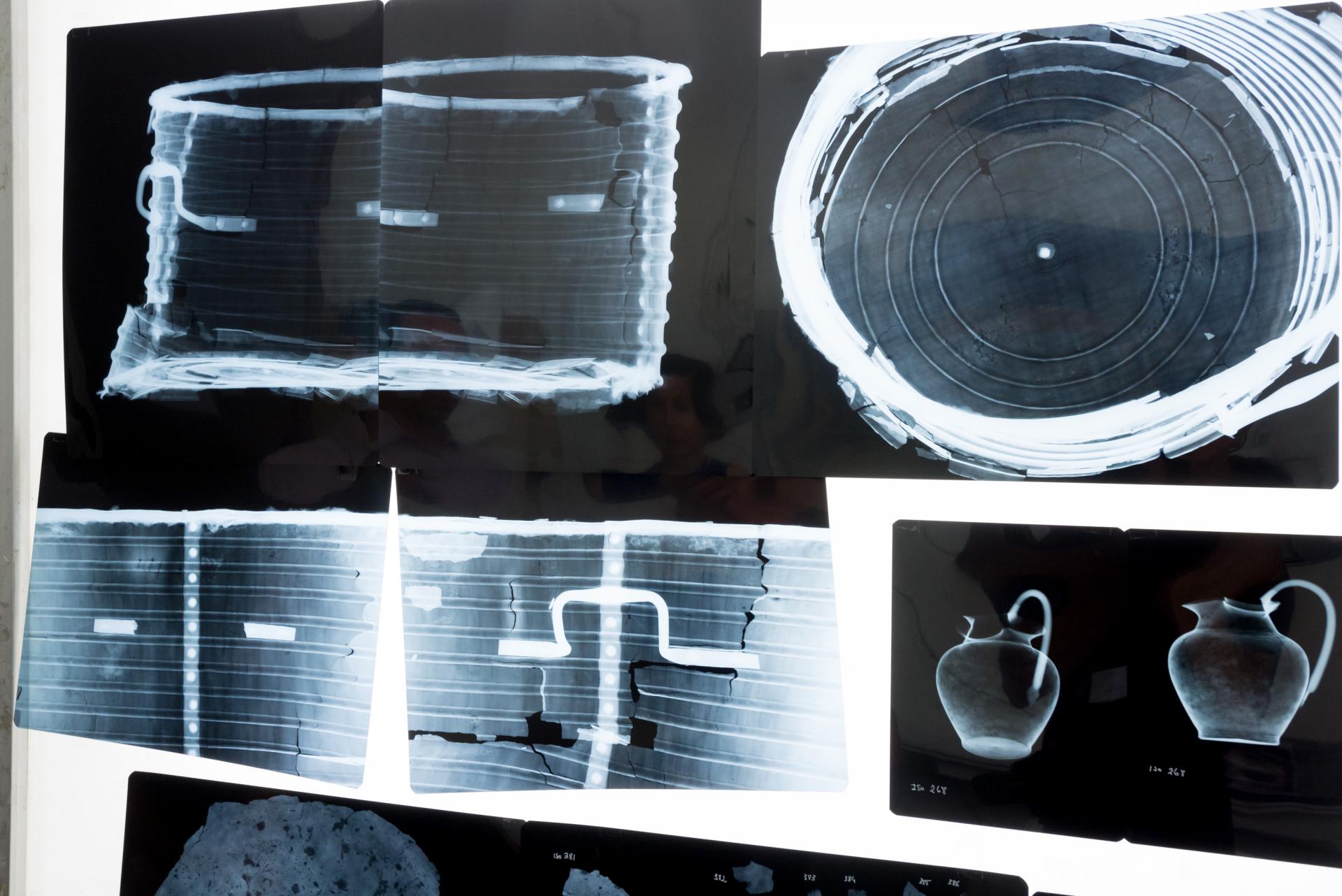
LAVAU, FRANCE—The International Business Times reports that archaeologists from France’s National Institute of Preventive Archaeology (INRAP) have analyzed artifacts from the tomb of the Lavau Prince, discovered in eastern France in 2015. The objects from the tomb include a bronze cauldron decorated with a sculpted head of Dionysus, a chariot, and gold jewelry. X-ray radiography has revealed that the prince's unique belt was decorated with Celtic motifs formed with silver threads. Chemical analysis and 3-D photography of a large wine jar in the tomb indicate it was made from Greek-style ceramic, but decorated with golden Etruscan motifs and silver Celtic designs. The researchers explained that the artifacts reflect the cultural and economic interactions between people living in the Celtic and Mediterranean worlds in the fifth century B.C. For more on this discovery, go to “Tomb of a Highborn Celt.”


